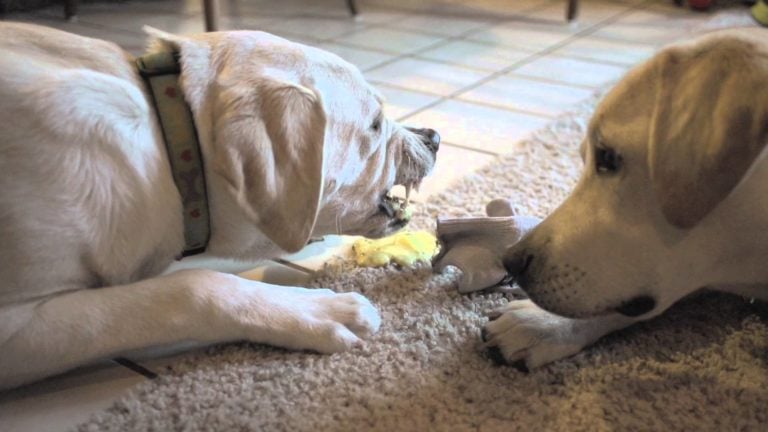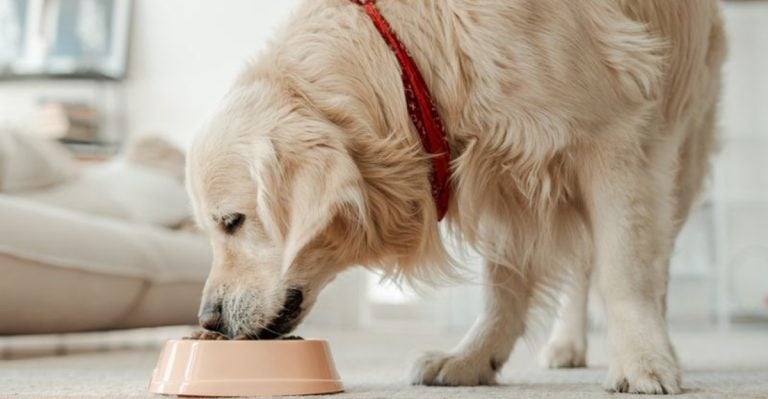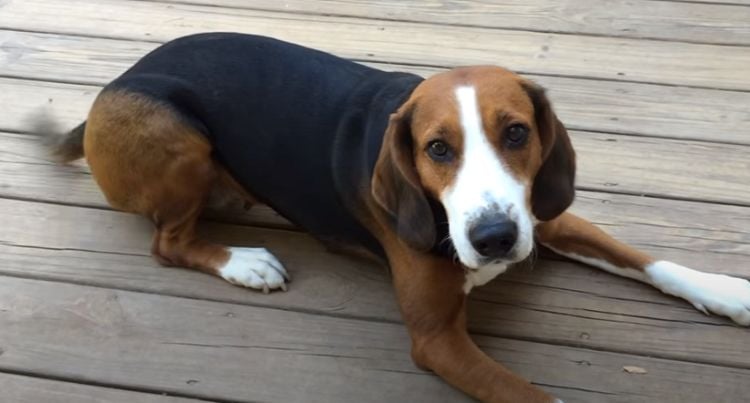6 Safe Sips for Dogs—and 5 You Should Dump Immediately
Just like us, our furry friends get thirsty too! But not everything we drink is safe for our canine companions. Knowing which liquids are okay to share with your dog can prevent emergency vet visits and keep tails wagging.
Here’s a handy guide to what drinks are safe for your pup and which ones should never make it into their bowl.
1. Fresh, Clean Water: The Ultimate Hydration Hero
Nothing beats plain water for keeping your pup properly hydrated. Dogs need about an ounce of water per pound of body weight daily, with active or nursing dogs requiring even more.
Always ensure your dog’s water bowl is clean and filled with fresh water. Stagnant water can harbor bacteria that might make your furry friend sick.
Consider getting a pet fountain if your dog seems reluctant to drink enough. Many dogs prefer moving water, and these fountains help encourage proper hydration while keeping water fresh longer.
2. Bone Broth: A Tasty Nutritional Boost
Homemade bone broth offers dogs a flavorful treat packed with joint-supporting collagen and valuable nutrients. The key is making it dog-safe by avoiding onions, garlic, and salt – ingredients commonly found in store-bought versions that can harm your pet.
Serve bone broth cooled or frozen into ice cubes for a refreshing summer treat. Many pet parents find it helpful for enticing picky eaters or hydrating dogs recovering from illness.
Remember to introduce bone broth gradually to avoid digestive upset, and always offer it as an occasional supplement rather than a water replacement.
3. Goat’s Milk: Gentle on Canine Tummies
Unlike cow’s milk, goat’s milk contains less lactose, making it easier for many dogs to digest without uncomfortable gas or diarrhea. It’s packed with probiotics that support gut health and immune function.
Small amounts of raw, unpasteurized goat’s milk can be especially beneficial for dogs with sensitive stomachs or food allergies. The natural enzymes help break down proteins that might otherwise cause reactions.
Start with just a tablespoon to see how your dog responds before offering more. While nutritious, goat’s milk should only make up a small portion of your dog’s liquid intake – about one-quarter cup per 25 pounds of body weight.
4. Coconut Water: Nature’s Electrolyte Solution
Plain, unsweetened coconut water offers dogs a natural source of electrolytes without the harmful additives found in sports drinks. Rich in potassium and naturally occurring minerals, it can help rehydrate active dogs after intense exercise.
Always choose varieties with no added sugar, flavors, or preservatives. Read labels carefully – many commercial brands contain additives that aren’t dog-friendly.
Moderation is crucial with this tropical treat. Too much coconut water can cause loose stools due to its natural sugar content, so limit offerings to a few tablespoons for small dogs or up to half a cup for larger breeds.
5. Caffeine-Free Herbal Teas: Soothing Sippin’
Certain caffeine-free herbal teas offer gentle remedies for common canine ailments. Chamomile can calm an anxious pup, while ginger tea helps settle upset stomachs during car rides or after dietary indiscretions.
Always brew teas weakly and serve them completely cooled. Hot liquids can burn sensitive mouths and tongues, creating painful injuries your dog can’t tell you about.
Skip honey or sweeteners when preparing tea for your furry friend. Most dogs enjoy the natural flavors without added sugars that can contribute to weight gain and dental problems. A tablespoon or two mixed with their regular water provides therapeutic benefits without overwhelming them.
6. Dog-Formulated Beverages: Specialty Hydration
Pet companies now create drinks specifically designed for canine consumption. These include dog-safe electrolyte solutions for active pups and novelty beverages like “dog beer” (non-alcoholic, usually made from meat broth and malt barley).
The advantage of these products is their careful formulation with dog-safe ingredients and appropriate nutrient levels. Many contain added vitamins or supplements that support joint health, coat condition, or dental care.
While usually safe, these products should complement rather than replace water. Check ingredients carefully – even pet-specific products can contain unnecessary additives or allergens that might affect sensitive dogs.
Now that you know what’s safe, let’s talk about the drinks that should stay far away from your pup’s bowl.
1. Alcohol: A Dangerous No-Go Zone
Even tiny amounts of alcohol can cause serious harm to dogs. Their bodies metabolize alcohol differently than humans, leading to rapid intoxication and potentially fatal consequences including respiratory depression, cardiac arrest, and coma.
Beer, wine, cocktails, and alcohol-containing foods like rum cake are all dangerous. Dogs may be attracted to sweet mixed drinks or unattended glasses, making vigilance essential during parties or gatherings.
If you suspect your dog has consumed alcohol, contact your veterinarian immediately. Signs of alcohol poisoning include disorientation, vomiting, excessive urination, and in severe cases, seizures or collapse. Never wait to see if symptoms improve – prompt treatment is critical.
2. Caffeinated Drinks: Heart-Racing Hazards
Coffee, tea, energy drinks, and sodas containing caffeine pose serious risks to dogs. Caffeine stimulates their nervous system and cardiovascular system much more intensely than it does ours, potentially causing racing heartbeat, restlessness, and even cardiac arrhythmias.
Many dogs are attracted to drinks with milk or sugar, making it crucial to keep coffee cups and tea mugs out of reach. Just a few sips of strong coffee could cause significant problems for a small dog.
Symptoms of caffeine toxicity include hyperactivity, vomiting, elevated heart rate, and in severe cases, seizures or collapse. If your dog consumes anything caffeinated, contact your vet immediately rather than waiting for symptoms to appear.
3. Milkshakes and Sugary Drinks: Sweet Trouble
Those creamy milkshakes and sweet sodas might seem like fun treats to share, but they’re packed with sugar, fat, and often artificial sweeteners that spell trouble for dogs. The high dairy content can trigger digestive upset since most adult dogs lack sufficient lactase to process milk products properly.
Artificial sweeteners, especially xylitol, are particularly dangerous. This common sugar substitute causes rapid insulin release in dogs, leading to potentially fatal hypoglycemia (low blood sugar).
Regular consumption of sugary drinks contributes to obesity, dental disease, and diabetes in dogs just as it does in humans. Water remains the healthiest choice for quenching your pup’s thirst without risking their wellbeing.
4. Fruit Juices: Hidden Dangers in Natural Packaging
Fruit juices might seem like natural, healthy options, but they concentrate sugars while removing fiber that would normally slow sugar absorption. This sugar rush can lead to obesity and dental problems in dogs just as it does in humans.
Grape juice is particularly dangerous – grapes and raisins can cause acute kidney failure in dogs, though scientists haven’t identified exactly which compound causes this toxicity. Even small amounts have proven fatal in some cases.
Apple juice and other fruit juices, while not as immediately toxic as grape juice, still contain concentrated sugars and acids that can harm teeth and contribute to weight gain. When it comes to fruits, small pieces of whole fruit are safer than juice.
5. Sports Drinks: Electrolyte Imbalance Inducers
Gatorade, Powerade, and similar sports drinks are formulated for human athletes, not canine companions. They contain levels of sodium, sugar, and artificial colors that aren’t appropriate for dogs and can disrupt their carefully balanced electrolyte systems.
The high sugar content contributes to weight gain and dental problems. Meanwhile, artificial colors and flavors offer no nutritional benefit and may cause digestive upset or allergic reactions in sensitive dogs.
After exercise, plain water remains the best choice for most dogs. For truly intense activity in hot weather, ask your veterinarian about dog-specific electrolyte products formulated with canine physiology in mind rather than reaching for your sports drink.

















